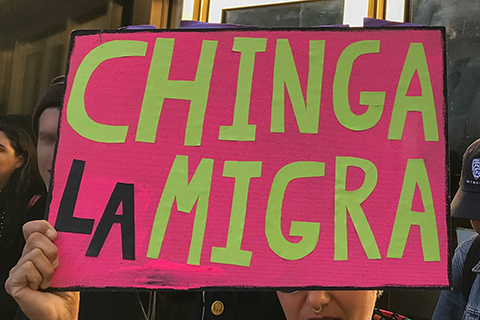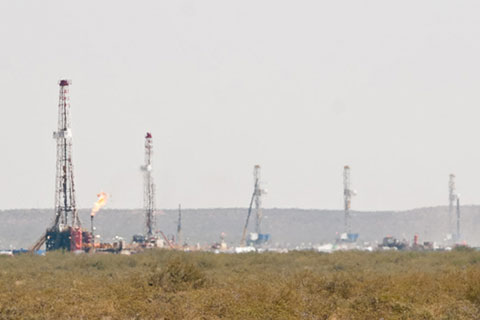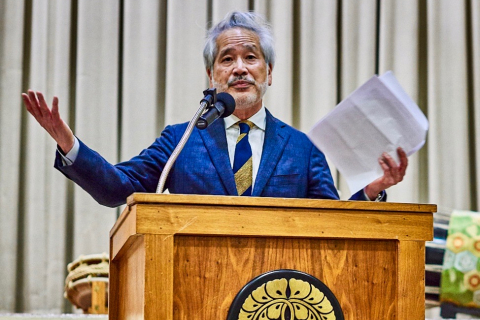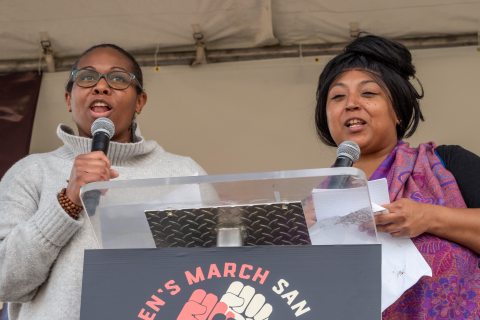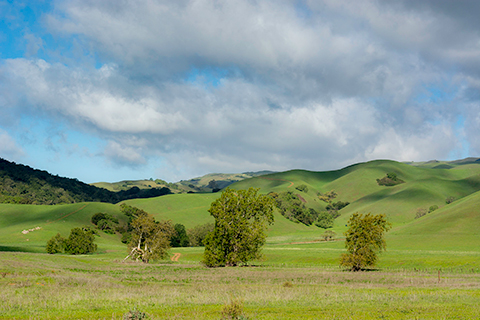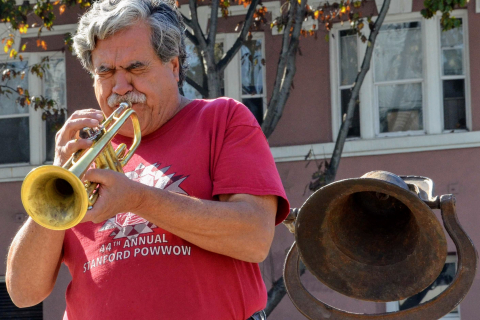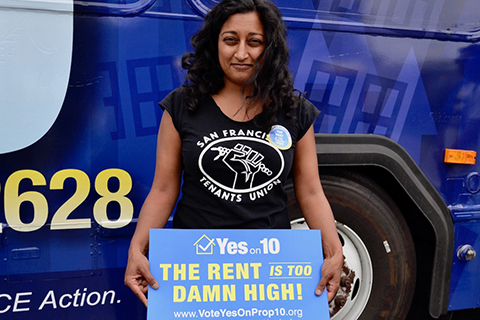Feature Archives
Sun Jul 21 2019 (Updated 07/26/19)
Under Continuing ICE Threat, Rapid Response Mode for Communities
As news continues to pour in that the Trump administration’s attacks against immigrants and refugees has reached new lows, Bay Area residents are feeling a renewed sense of urgency. On the heels of protests throughout the region on July 2 and further official announcements about coming ICE raids, July 12 saw a new round of demonstrations, including protests at the city of San Francisco's Sansome Street ICE facility. In Santa Clara County, the Rapid Response Network (RRN) reported an increase in calls of observed ICE activity, as people are on high alert. Volunteers who document ICE interactions with immigrants have seen their ranks increase quickly.
The Center for Biological Diversity is suing the Bureau of Land Management over its refusal to provide public records of its plans new oil drilling and fracking along California’s Central Coast and in the Bay Area. The BLM has yet to publicly release the final plans, but earmarked for leasing are lands in Alameda, Contra Costa, Fresno, Merced, Monterey, San Benito, San Joaquin, San Mateo, Santa Clara, Santa Cruz and Stanislaus counties. The Trump administration’s plans would end a six-year moratorium on leasing federal public land and mineral estate in California to oil companies.
Mon Feb 25 2019
Japanese Americans, Allies Say “Never Again is Now”
On February 17, members of the greater San José Japanese American community commemorated the anniversary of Executive Order 9066, which led to the incarceration of 120,000 Americans of Japanese descent during World War II. At the same time they protested the National Emergency Trump announced two days earlier in order to build his wall on the Mexico-U.S. border. Allies from the South Bay peace activist community joined with those gathered in the local Japantown, one of only three left in the United States.
Fri Jan 25 2019 (Updated 01/03/20)
San Francisco Bay Area Women's Marches Inclusive, Exhilirating
On January 19, at women's marches throughout the Bay Area, the focus was on unity rather than the rift in the national group. Optimism was abundant despite a slight decrease in attendance over last year. The marches were not without critics who cited a lack of attention to the plight of the underhoused and other issues effecting women. Unlike the city of New York where there were two separate marches, however, a spirit of solidarity ruled the day. The largest marches in the Bay Area were in San Francisco, San Jose, Oakland, and Santa Cruz.
Fri Nov 30 2018 (Updated 12/02/18)
Protect Juristac: No Quarry on Sacred Grounds
The Amah Mutsun tribe is waging an all-out campaign to stop a proposed sand and gravel quarry that would desecrate one of their most important sacred places. The Amah Mutsun Tribal Band know it as Juristac. The public knows it as Sargent Ranch, 6,500 acres of nearly pristine open space at the tail end of the Santa Cruz Mountains, where the foothills slope down towards the broad agricultural fields south of Gilroy. To the Debt Acquisition Company of America (DACA), the property’s owner, it is a potential sand and gravel quarry.
Wed Nov 14 2018 (Updated 11/15/18)
Ringing a Bell for Peace
Veterans for Peace chapters across the nation gathered on street corners in major cities to commemorate the original Armistice Day by ringing bells 11 times at 11am on the eleventh day of November. In San José, Chapter 101 held a ceremony in front of City Hall. WWI ended on November 11th in 1918 and one year later the world came together in realization that war is so horrible it must end forever. That was the first Armistice Day; Congress officially changed the name to Veterans Day in 1954.
Sun Nov 4 2018 (Updated 11/08/18)
The Rent Is Too Damn High
UPDATE 11/8: While millions of ballots remain uncounted in California, it appears Prop 10 was defeated.
Grassroots activists have been campaigning hard for the Affordable Housing Act, a ballot initiative to repeal California’s Costa Hawkins state law and return control of rental housing law to local jurisdictions. Several localities have promised to act rapidly should Proposition 10 pass. But real estate interests have spent over $70 million to defeat Prop 10. Should it not pass on November 6, housing rights activists remain committed to pushing for rent control and other tenant protections locally and statewide in the future. Nationwide, a new movement has been inspired by California's efforts.
Grassroots activists have been campaigning hard for the Affordable Housing Act, a ballot initiative to repeal California’s Costa Hawkins state law and return control of rental housing law to local jurisdictions. Several localities have promised to act rapidly should Proposition 10 pass. But real estate interests have spent over $70 million to defeat Prop 10. Should it not pass on November 6, housing rights activists remain committed to pushing for rent control and other tenant protections locally and statewide in the future. Nationwide, a new movement has been inspired by California's efforts.
South Bay:
 4
4



